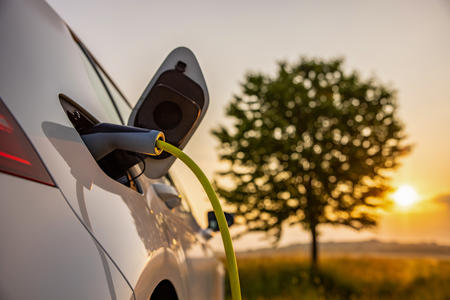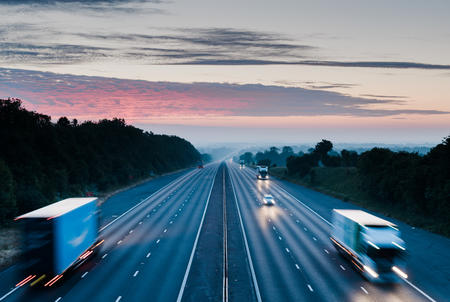This September we celebrated our fifth year anniversary of EV100. Whether it was virtually or in person at Climate Week NYC, our members joined together from around the world to share insightful stories about their EV100 journeys, and shouted about how we can go further, faster.
Below, we reflect on the growth of EV100 over the past five years, and take a look at some of the exciting achievements we celebrated this anniversary.
EV100 has grown from strength to strength
As seen in our Annual Report, since our launch in 2017, our members have been leading the electromobility revolution from the front:
- Within five years, we have grown from 10 founding members to over 120 leading businesses across 98 markets worldwide
- Within three years, EV100 has grown from operating 10,000 vehicles to almost 210,000
- Within three years, EV100 has grown from 2 million vehicles committed by 23 members across 66 markets, to over 5.5 vehicles committed by 123 members across 98 markets
- Two years ago, EV100 members were on track to prevent 42 million metric tons CO2e, the equivalent of 11 coal power plants. Now, through their ambitious commitments our members will save double that (85.6 million metric tons CO2e) by 2030.
.png?itok=JDDHPDAF)
Our success stories
The global footprint of EVs is growing rapidly
This anniversary highlighted the progress of the global EV market over the past five years. With more countries in emerging markets taking leadership on electromobility, members like LG Energy Solutions, our first member in South Korea, Localiza, our first member in Brazil and InterEnergy, our first member in the Dominican Republic, are playing a central role in driving growth in emerging EV markets.
For some time, South Korea has focused on expanding its EV battery business, so it was exciting to have LG Energy Solutions become the first Korean company and first global battery maker to join EV100 in 2021. Already, the company has set an interim target of converting 50% of its fleet to EVs by 2026, and has installed 83 charging stations globally.
Localiza, who joined in the same year, are one of the largest car rental companies in Brazil. Committed to electrifying 85,000 vehicles by 2027, and installing 1,000 charging points, Localiza’s high ambition reflects the growing confidence from businesses to transition at speed.
In the Dominican Republic, InterEnergy have already achieved over 82% of vehicle electrification, helping to position Dominican Republic with the goal to achieve zero emission transportation.

EV100 members are transitioning ambition into action
This anniversary went beyond celebrating commitments. We shone a light on the actions, innovations and progress our members are making to transition fleets, faster.
And Austrian Post are no exception. By the end of 2021, the postal and logistics company were already operating 25% battery electric vehicles and are aiming for another 1,000 EVs by the end of 2023. Elsewhere in the EU, EDF are tackling the charging problem head on by installing vehicle to grid (V2G) technology, underground parking terminals and ultra fast charging stations.
In the UK leads with the largest number of corporate fleets committed. And now, companies like Tusker, which have increased its EV fleet by 60% for its salary vehicles, and Fleet Alliance who have three times more EVs than in 2020, are transitioning that ambition into action.
Iron Mountain which are headquartered in the US and have electric vans operating across Europe and North America, launched a program to roll out EV vans and installing charging points, starting with London this year.
In India, where the transport sector is currently the third largest emitter of CO2, Zomato, a leading food delivery company based in India, are eager to encourage their delivery partners to transition their fleets, helping drive the entire last mile logistics sector towards electromobility. With over 100,000 delivery partners in their network, they have successfully managed to offer EV deliveries in 43 Indian cities.

EV100 are confronting challenges and calling for stronger policy
As our members are growing more confident in the transition, businesses are increasingly recognising that strong corporate leadership not only requires targets for its own operations, but actively backing policies that ensure the entire industry follows suite. This anniversary, our members took the opportunity to highlight the common barriers they are facing, and where they need policymakers and OEMs to step up.
- On charging infrastructure: Openreach, which has 40% of its work force living in flats without access to off-road parking, have long been calling for policies and greater investment for a much stronger infrastructural public charging network.
- On vehicle availability: Vattenfall operates heavy vans and trucks in extreme winter conditions, and says “we are in the hands of the OEMS when it comes to availability” but is confident that as supply improves, it will have more options by 2025.
- On upfront EV costs: Zomato say that financial and urban planning policies are now needed to allow for the growth of the bike rental leasing and battery swapping businesses.
What’s next for EV100?
We’re proud of everything EV100 has achieved over the past five years. Thanks to our members, we are driving markets forward, calling for policy movement and showing OEMs that businesses demand change. But there’s much more to be done before 2030. Through turning commitments into practical action, we will continue to accelerate the EV transition at speed. Now with the launch of EV100+ - our new initiative to tackle the heaviest, most polluting vehicles, we will build on the successes of EV100 to drive demand for zero emission MHDVs too.


